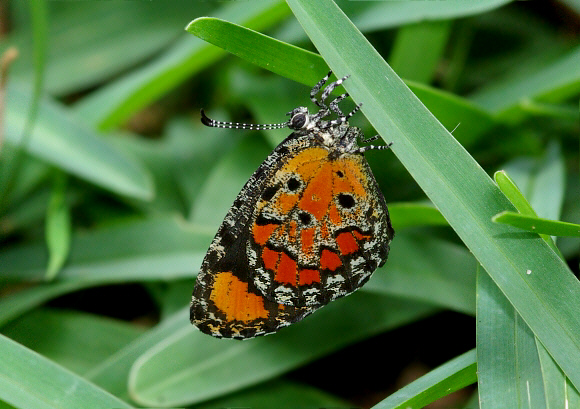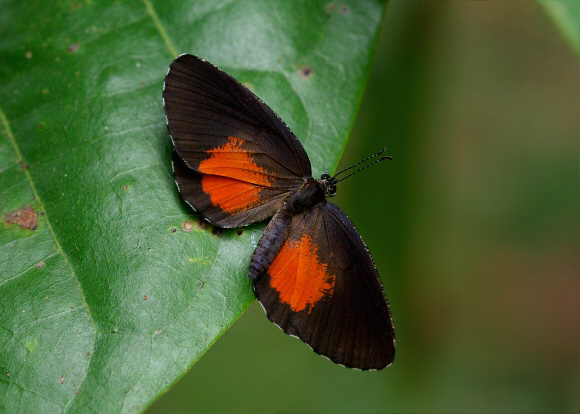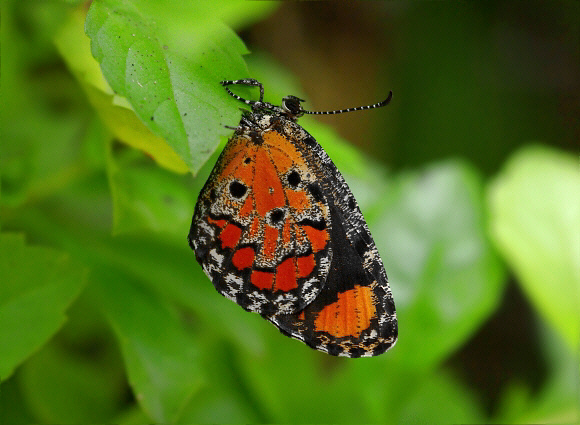
Introduction
The subfamily Lipteninae is wholly African in distribution, and comprises of no less than 600 species, varying from the tiny Eresiomera bicolor to the dazzling bright metallic blue Epitola posthumus – a species which with a wingspan of 65mm is massive by Lycaenidae standards.
The Lipteninae are fascinating because of their association with “ant trees”, i.e. trees which support colonies of Crematogaster ants. As with most other Lycaenidae species, the caterpillars of Liptenids have ants in almost constant attendance. The ants “milk” a sugary substance from a gland on the caterpillar’s back, and in return for this reward the caterpillar benefits because the presence of the aggressive ants deters other insects such as wasps and flies that would otherwise attack them.
Mimeresia comprises of about 15 species. The genus is unusual in that the genitalia of the males are identical in all species ( within most butterfly genera the genitalia differ greatly, and are used by taxonomists as species indicators ). The individual species however differ strongly in colour and pattern, and their status as full species is confirmed by DNA analysis.
Mimeresia libentina is found from Sierra Leone to Cameroon and Gabon.

Habitats
This species is found in primary and secondary forests.
Lifecycle
The larvae feed on algae growing on the bark of trees or on boulders or walls. Unlike most other Liptenids this species does not appear to live in association with ants.
Adult behaviour
The butterflies are occasionally encountered fluttering weakly around the lower branches of trees or feeding at extrafloral nectaries. At dusk or on dull overcast days they can be found at roost hanging from thin dry twigs, usually less than 1 metre above ground level.

